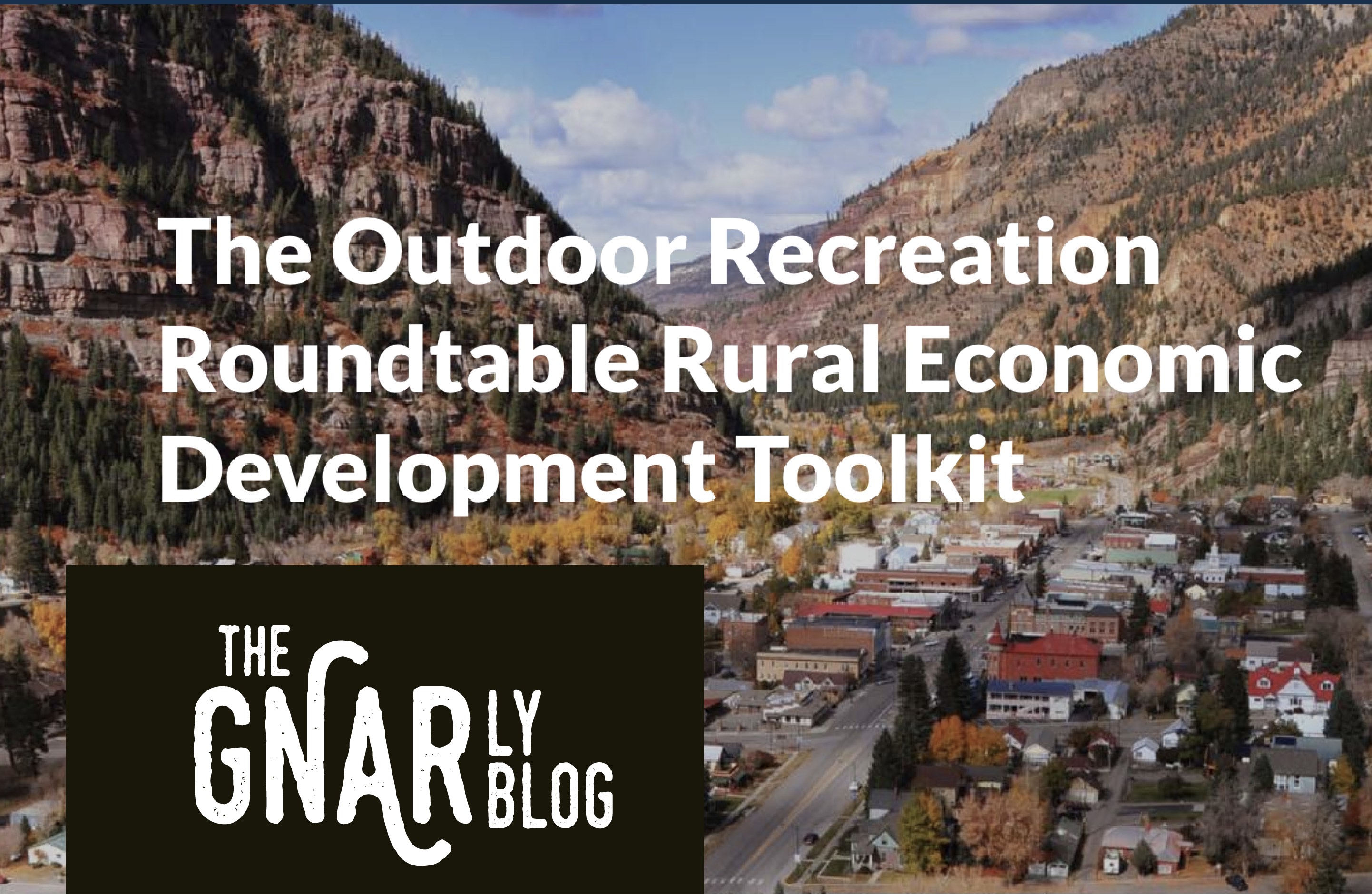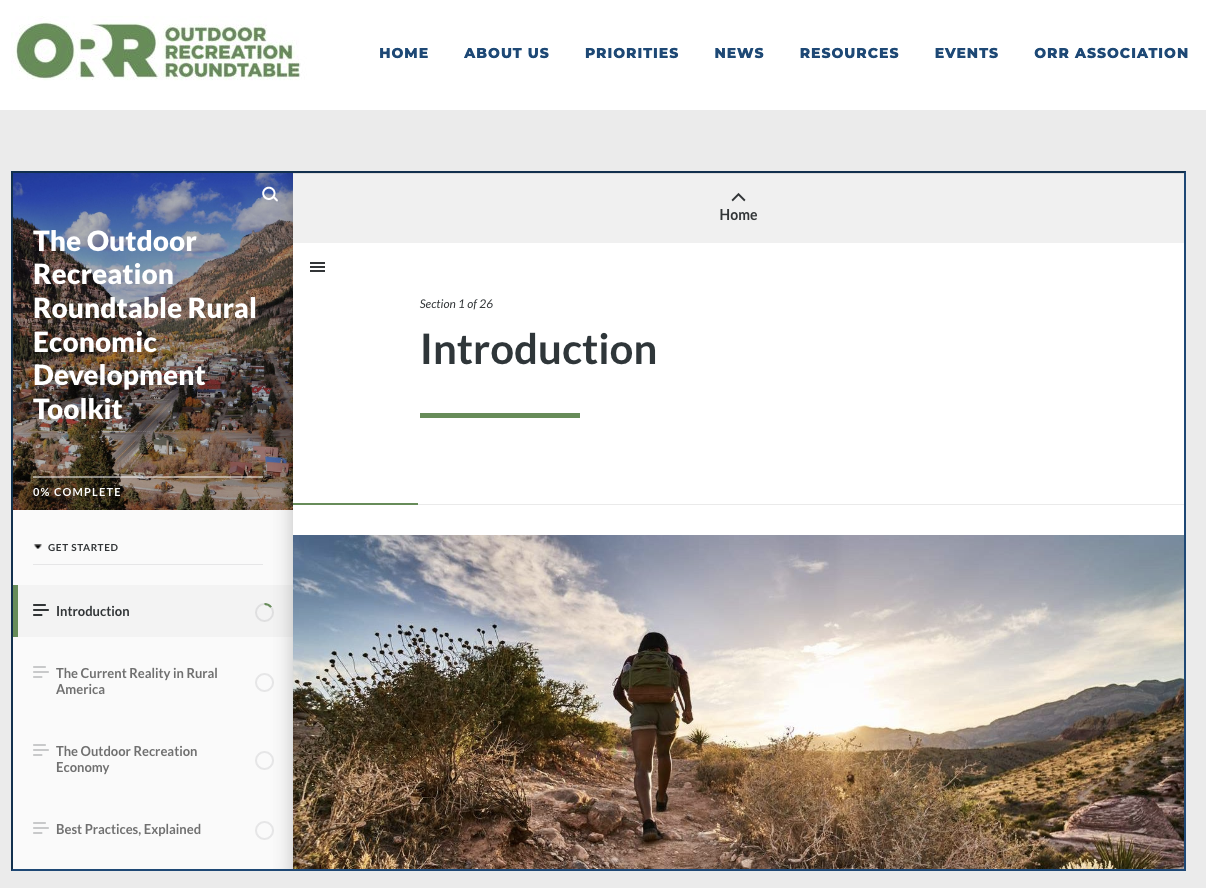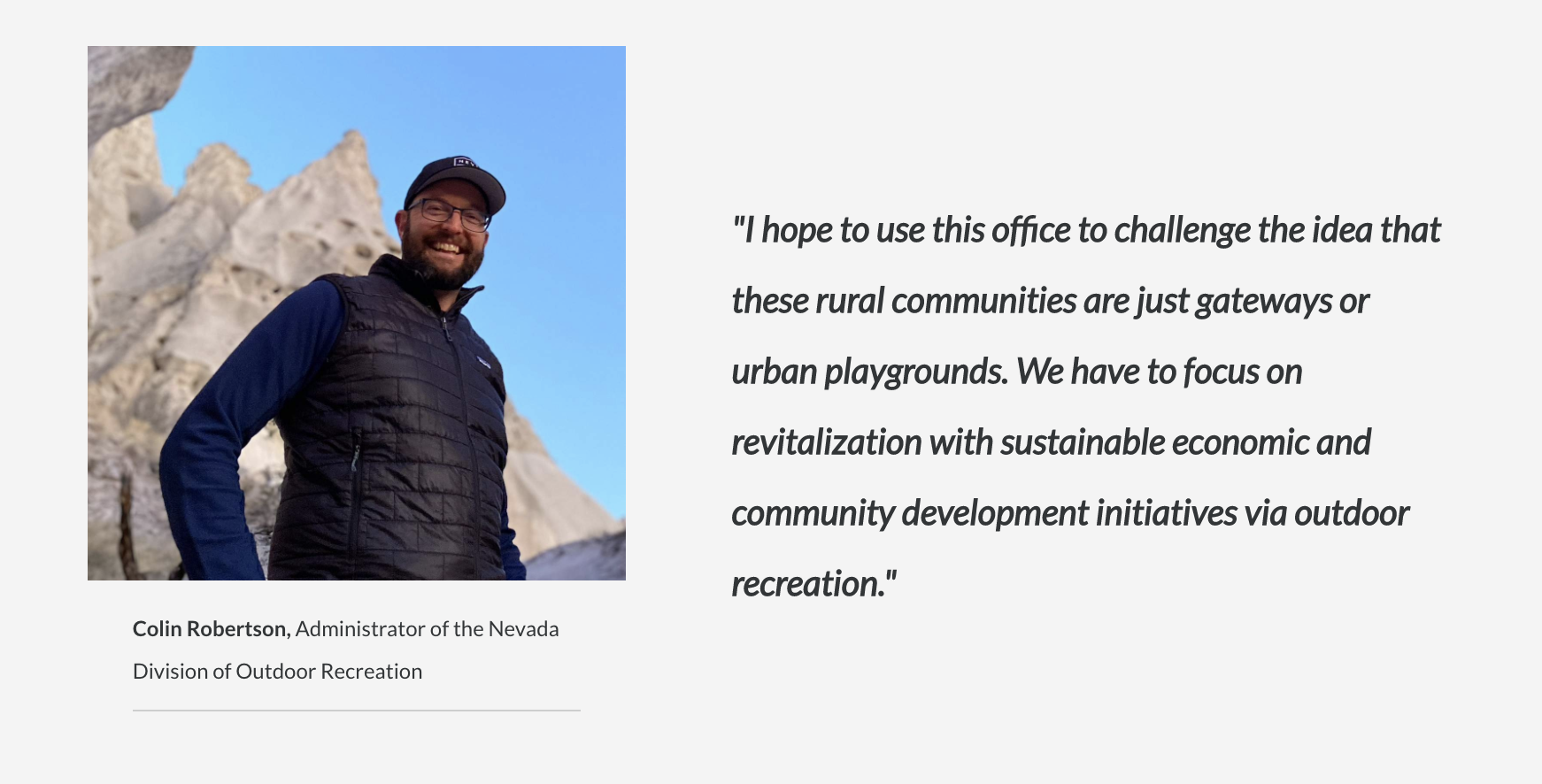
A Dive into the Rural Economic Development Toolkit from the Outdoor Recreation Roundtable
By: Chris Perkins, Senior Director, Outdoor Recreation Roundtable
In mid-February 2022, the U.S. Economic Development Administration provided a major update on their “Travel, Tourism, and Outdoor Recreation” funding opportunity, which provided grants to develop outdoor recreation infrastructure, workforce development programs, outdoor recreation promotion, and other projects to help communities build their economies around outdoor recreation: "We received application submissions totaling $1.38 billion across the country. This accounts for about 6 times the $240 million available."
Anyone who had followed economic and social trends since the start of the COVID-19 pandemic was not surprised by this level of demand for outdoor recreation funding. In the early days of the pandemic, popular recreation communities initially saw their economic activity plummet as national and state parks and forests proactively closed their gates to prevent the spread of the virus, and small businesses closed down. Some communities even took the drastic step of telling tourists to stay away, out of concern for local hospitals, search and rescue teams, and infrastructure. 
But as the science of COVID (and the relative safety of outdoor activities) became clear, so did the habits of Americans: people craved the outdoors and the communities that supply high quality outdoor opportunities. Recreation sales and participation broke records in 2020 and 2021, and new potential for remote work enabled people to move to recreation destinations that enabled a work-life balance. Communities around the country saw the potential for outdoor recreation as an economic driver.
For these communities (often rural), this unprecedented interest in outdoor recreation offers many benefits to their towns: supporting tourism-related businesses as well as outdoor manufacturers, retailers, guides and outfitters; and recruiting new residents and businesses who want to live and work near recreation assets. This generates new visitor spending, increases tax revenues and property values, and improves quality of life in communities. At the same time, however, communities also must contend with newfound challenges related to housing and local infrastructure, traffic, wildlife, and community character.
Fortunately for communities like these, the Outdoor Recreation Roundtable’s (ORR) Rural Economic Development Toolkit provides a roadmap to approach the process of rural economic development through outdoor recreation for communities who are looking to diversify their economies or those who already have an outdoor recreation identity. The toolkit, which features 15 best practices for rural economic development, and highlights shared challenges among outdoor recreation communities, was developed in the summer of 2020 through interviews with over 60 practitioners in the field.
As the author of the toolkit, I recognized that the best perspectives to showcase were those who live and work in the field. I realized early on that I was talking to people who live in these communities every day—so I built the toolkit around the quotes, perspectives, and analysis of real people in real communities
The toolkit is well-suited to communities at any stage in the development process—for example, a community that is early on in its outdoor recreation visioning process without much wide recognition of outdoor recreation would be wise to start with the sections entitled “Identify and Empower Local Champions” and ”Unify Behind Consistent Messaging”; a community that has already built some local momentum might consider “Generate Public Support” and/or “Provide Professional Development” as its starting point; and a community already experiencing significant visitation could start at “Achieve Buy-In From the State” or “Plan for Destination Management.” The practices and strategies listed throughout are written to be evergreen no matter the community, demographics, or geography, making it an effective tool to support recreation economy development in any context. For this reason, the toolkit has become the most-viewed resource on ORR’s website, and we have been invited to give presentations on its findings to communities across the country. 
The toolkit is a 30-thousand-foot look at the big picture of outdoor recreation economy development which can give communities an idea of where they are in the process and where they might want to go. I recommend utilizing hubs like the Gateway and Natural Amenity Region (G.N.A.R.) Initiative’s set of resources for communities who are looking to dig into the nitty-gritty of questions like zoning and development, destination management, and frameworks to ensure sustainability of natural resources. And of course, there is no single approach to building economic resilience that will work for every community— the decisions a community makes must be informed by their specific context. Much of the learning about best practices for certain types of recreation communities is happening as we speak: in places like Crested Butte, Colorado, Kanab, Utah, Stowe, Vermont and Fayetteville, West Virginia, among many others outstanding destinations for outdoor recreation.
COVID illuminated trends that the outdoor industry has recognized all along—that outdoor recreation can be the core of sustainable, diversified, and healthy communities. Now it’s up to us to share resources like these to ensure that outdoor recreation is here to stay.
 CHRIS PERKINS is a Senior Director at the Outdoor Recreation Roundtable, where he works to promote the sustainable growth of the outdoor recreation economy. This work focuses on rural economic development through outdoor recreation, outdoor recreation infrastructure, and building a more inclusive outdoor recreation community. Chris received a Masters in Environmental Management and Masters in Business Administration at the Yale School of the Environment (YSE) and Yale School of Management (SOM). Chris has also worked for the U.S. House of Representatives Natural Resources Committee, Oversight and Investigations Subcommittee. Chris supports Founder Teresa Baker on the Outdoor CEO Diversity Pledge (“The Pledge”), a commitment for outdoor businesses and organizations to improve on DEI efforts. The Pledge now has over 180 corporate and nonprofit partners. He lives in Victor, ID with his wife and dog.
CHRIS PERKINS is a Senior Director at the Outdoor Recreation Roundtable, where he works to promote the sustainable growth of the outdoor recreation economy. This work focuses on rural economic development through outdoor recreation, outdoor recreation infrastructure, and building a more inclusive outdoor recreation community. Chris received a Masters in Environmental Management and Masters in Business Administration at the Yale School of the Environment (YSE) and Yale School of Management (SOM). Chris has also worked for the U.S. House of Representatives Natural Resources Committee, Oversight and Investigations Subcommittee. Chris supports Founder Teresa Baker on the Outdoor CEO Diversity Pledge (“The Pledge”), a commitment for outdoor businesses and organizations to improve on DEI efforts. The Pledge now has over 180 corporate and nonprofit partners. He lives in Victor, ID with his wife and dog.

